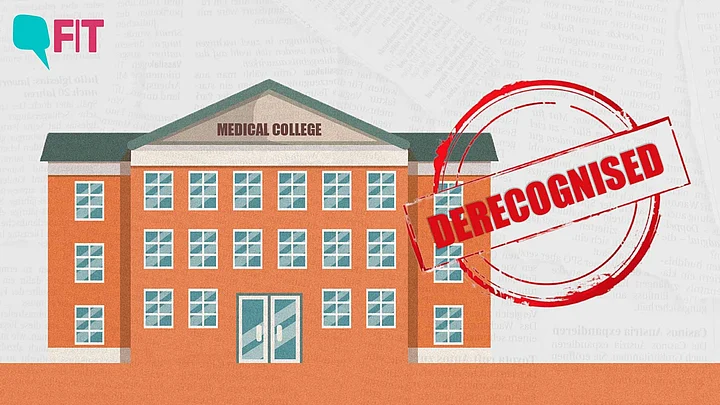

On 5 June, 50-year-old Mumbai resident Kavita Dalvi was admitted to Wockhardt Hospital after she suffered a heart-related ailment. Two surgeries and 15 days later, Dalvi breathed her last on 20 June.
Her husband Vikas, while talking to Mid-Day, alleged that her death was caused due to “hospital’s negligence” as they inserted a faulty valve in her heart.
This is not a one-off case of medical negligence. On Saturday, 24 June, the National Consumer Disputes Redressal Commission ordered a Delhi-based private hospital to pay Rs 1.5 crore to a couple for “negligence and resorting to unethical practices,” during an IVF procedure in 2009.
While medical negligence cases may be in the news every so often, information about them remains mostly jargonised.
FIT spoke to experts to understand all this and more – What is medical negligence? Which laws govern it? Who can aggrieved citizens approach? Do doctors and hospitals have a defence in such cases?

Section 304A of the Indian Penal Code defines 'causing death by negligence' as a death caused by "doing any rash or negligent act not amounting to culpable homicide." It says,
"Whoever causes the death of any person by doing any rash or negligent act not amounting to culpable homicide, shall be punished with imprisonment of either description for a term which may extend to two years, or with fine, or with both," Section 304A states.
However, Namrata Mohapatra, an advocate who practises at the Delhi High Court and the Supreme Court, says that based on the judgment in Jacob Mathew Vs State of Punjab (2005), a doctor may be held liable for negligence if:
In the same case, the Supreme Court also accepted that the principle relating to medical negligence is called the ‘BOLAM Rule’, which says that “a medical negligence arises from an act of omission by a medical practitioner, which a reasonably competent and careful practitioner would not have committed.”
However, the law does not define what "act of omission" or "reasonably competent and careful practitioner" mean, say Mohapatra. So, in reference to older cases, the latter is often taken to be someone who has a medical degree.
Areeb Uddin Ahmed, a Delhi-based advocate, tells FIT, "To establish a case of medical negligence, the following elements are generally considered: duty of care, breach of duty, causation, injury, or harm."
Examples of medical negligence might include:

Although medical negligence in India is governed under Section 304A (causing death by negligence) of the IPC, Mohapatra says, certain other IPC sections that are often referred to while hearing medical negligence cases include:
“For civil liability, it may be enough for the complainant to prove that the doctor did not exercise reasonable care in accordance with the accepted principles. But for convicting a doctor in a criminal case, it must also be proved that this negligence was gross and amounted to recklessness.”Namrata Mohapatra
Mohapatra goes on to explain that the former would apply in cases of smaller mistakes on the doctor's part, but the latter is often seen in cases where the patient passed away.
Ahmed also adds that these judgments have impacted the medical negligence laws in India:

"The patient must prove that the medical practitioner has fallen short of the standard of reasonable care, proved by evidence and material on record."Namrata Mohapatra
Ahmed explains the many steps that this might require. He says, "The claimant (the patient/their family) must establish that a doctor-patient relationship existed, and the doctor owed a duty of care towards the patient. Furthermore, the claimant must provide evidence to show that the medical professional breached the duty of care by deviating from the accepted standard of medical practice." He goes on to explain, "Thirdly, the claimant must establish a causal link between the breach of duty and the harm suffered. It should be demonstrated that the negligence directly caused or significantly contributed to the patient's injury or harm."
"Lastly, the claimant must prove that they have suffered damages or harm as a result of the alleged medical negligence. This can be done through medical records, expert opinions, and other relevant evidence."Areeb Uddin Ahmed
However, in cases where medical negligence is apparent, the doctrine of Res Ipsa Loquitur (the thing speaks for itself) is attracted, says Mohapatra, and the proof of burden shifts to the doctor. For instance, if the right leg of the patient had to be operated but the doctor operated on the left leg, the negligence is apparent and the burden of proof, in this case, would be on the doctor, says Mohapatra.